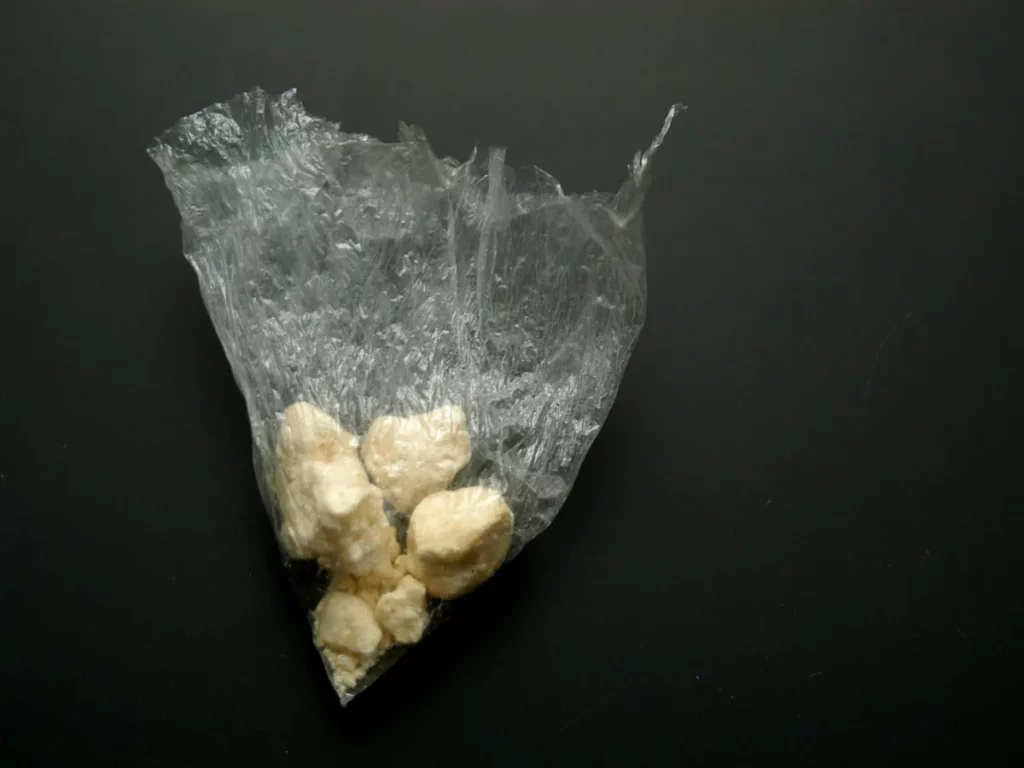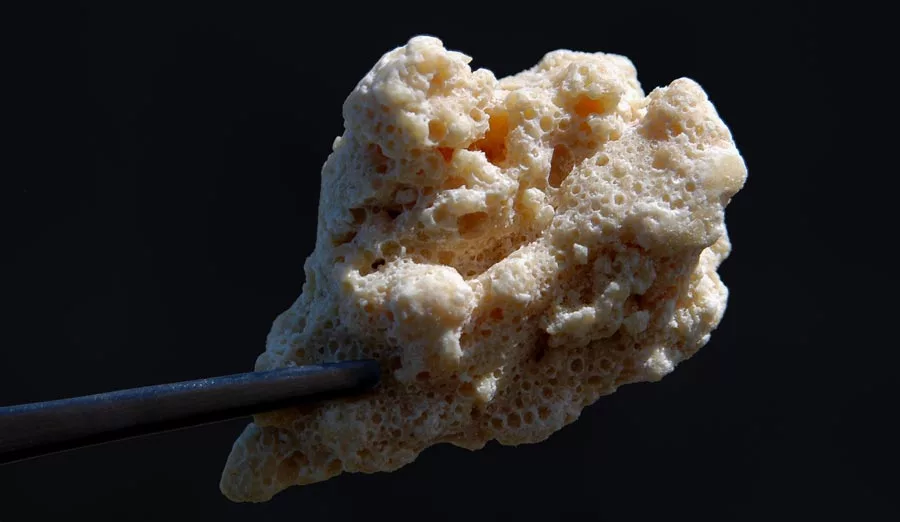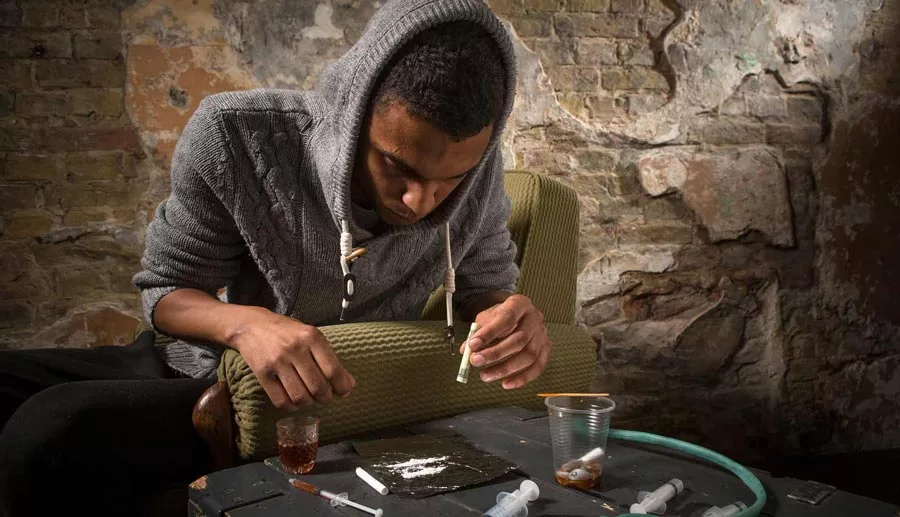What is Crack Cocaine?
Table of Contents
- What is Crack Cocaine?
- How is Crack Cocaine Used?
- What is the Difference Between Crack Cocaine and Coke?
- Is Crack Cocaine Addictive?
- How Addictive is Crack?
- Who Is at Risk of Abusing Crack Cocaine?
- Recognizing a Crack Cocaine Addiction
- What are the Side Effects of Crack Abuse?
- Is it Possible to Overdose on Crack?
- Crack Cocaine Overdose Symptoms
- What are Crack Cocaine Withdrawal Symptoms?
- Crack Cocaine Addiction Treatment
- Find Crack Treatment Options That Work For You!
- Medically Reviewed By
Crack cocaine is a derivative of the powerful and highly addictive stimulant drug, cocaine hydrochloride. This variant is developed by mixing cocaine, water, and baking soda, or ammonia. This mixture is then heated, usually by using a torch or lighter, solidifying it and producing the final product. Crack addiction can result rapidly from even from occasional use.
During the heating process, this substance will produce a cracking or popping sound, which is what gave it the name, ‘Crack’ cocaine. Once heated, this drug will have taken the form of a mineral-like substance, usually white or off-white in color.
Crack cocaine may also be referred to by various other street names, including “Tornado,” “Sleet,” “Gravel,” “Hail,” “Dice,” “Rock,” “Candy,” and “Crumbs.”
Keep reading to find our more about crack addiction and how to get effective treatment for you or a loved one!
The Rise of Crack Cocaine in the U.S.
Crack cocaine first started to become popular in the 1970s when a shift occurred in the coke market that led to the development of a more profitable form of cocaine. During this time, the market was flooded with coke to a point that its supply far exceeded the demand for this drug.
This led to a significant price reduction on cocaine, resulting in a decent loss of income for cocaine dealers. In their quest to make more money, dealers began transforming cocaine into small chunks that could be burned and smoked, now known as crack cocaine.
Predominantly within the late 1980s and throughout the 1990s, crack cocaine became increasingly popular among impoverished areas within the U.S. A trend, of which, became known as the “crack epidemic,” increasing crime and violence in major cities across the country.
This resulted in the United States government passing extreme crime prevention strategies, including the National Drug Control Strategy. This policy focused on increasing accessibility to evidence-based treatment methods, youth outreach, and limiting illicit substance supplies.
How is Crack Cocaine Used?
Crack cocaine users will typically engage in this form of drug use by vaporizing crack in a glass pipe, and inhaling the fumes this produces. Some people may also heat and smoke crack using empty soda cans or aluminum foil.
Smoking crack allows this drug to reach the brain faster, resulting in a more rapid and intense high. However, crack users also face the risk of experiencing various negative consequences from their cocaine abuse with this method; and not just that of becoming addicted.
What is the Difference Between Crack Cocaine and Coke?
There are several major differences between crack cocaine and coke, another less intense variant of cocaine. For starters, coke is a powdered hydrochloride salt while crack is a derivative of coke that is mixed with water and baking soda or ammonia.
Furthermore, coke will typically come in the form of a white powder, while crack comes in a rock-like substance that can be tan, light brown, cream, or white in color. Coke is also used by snorting or injecting this drug, while crack is smoked.
This means that it will take longer to feel the effects of using coke. However, these may be longer-lasting than those caused by using crack cocaine.
Is Crack Cocaine Addictive?
According to the Drug Enforcement Administration (DEA), cocaine is a Schedule II controlled substance, meaning that while it has an accepted medical purpose, it poses an extremely high risk for abuse.
Regular cocaine hydrochloride solution can be used as a local topical anesthetic. However, because more effective, and less dangerous, products have been developed to fill this role, cocaine is rarely ever medically used in the United States, today.
Crack cocaine is the most powerful variant of this drug, as well as the riskiest of its various forms. It is between 75-100% pure, making it far stronger, and far more dangerous, than regular cocaine.
This means that crack cocaine is also a highly addictive substance. When it comes to this drug, engaging in long-term substance abuse almost guarantees that a person will become addicted to crack.
Unlike its ‘parent drug,’ crack cocaine does not have an accepted medical use. Rather, it simply produces short-lived effects of euphoria and increased energy, and results in long-term health consequences when abused.
How Addictive is Crack?
Because of how potent crack cocaine is, this makes it a highly addictive drug. Furthermore, the smoking method that most crack users engage in makes its effects hit faster and stronger than that of any other cocaine variant.
Crack cocaine provides an instant, energy-boosting, and intensely euphoric high that lasts for a short time, usually no longer than five minutes. The combination of its intense high and faster onset of action is predominantly what makes people addicted to crack.
Once it reaches the brain, this drug blocks neuronal uptake or acceptance of dopamine, a neurotransmitter chemical that is responsible for mediating positive feelings and pleasurable sensations in the body.
Crack enables more dopamine to be present in the brain and even to connect to receptors where it interferes with the uptake. This desirable and rewarding feeling associated with surplus dopamine encourages a second use as well as dangerous binges.
Binging is a form of crack use that involves continuously taking high doses of the drug in very short periods of time. This can make the high it produces last longer, and produce even more intense side effects than smaller doses would.
Even one occasion of crack cocaine use can be habit-forming, meaning continued use of this drug is almost guaranteed to cause a dependency on it. This is because the body becomes tolerant to an individual’s crack cocaine abuse, resulting in an inability to function without it.
Who Is at Risk of Abusing Crack Cocaine?
While anyone is capable of developing a crack addiction, there are some individuals who may be more at risk of engaging in this form of drug abuse. One of the most at-risk groups of individuals for forming a cocaine addiction is those with mental health disorders.
According to the Substance Abuse and Mental Health Services Administration (SAMSHA), it is quite common for someone to struggle with a simultaneous mental illness and substance use disorder.
Also known as co-occurring disorders, or dual diagnoses, these typically result from an individual turning to substance use as a means of self-medicating the negative thoughts and emotions caused by their mental disorder.
Unfortunately, there is no guarantee that this will actually provide any sort of relief. Even in the event that these substances do work as intended, this solution is only temporary, and may make such feelings even more intense once these effects wear off.
Furthermore, relying on alcohol or drug abuse as a crutch for someone’s mental health issues may actually end up making these conditions worse over time. Not to mention, their addiction may also cause them to develop new mental health disorders, as well.
Apart from those associated with mental illness, other potential risks for developing an addiction to crack may also include:
- A family history of addiction
- Living with or being in close proximity to someone struggling with addiction
- Previous history of substance use and abuse
- Negative social, work, or home environments
Recognizing a Crack Cocaine Addiction
It can be hard to admit when you or a loved one may be struggling with addiction. However, knowing how to recognize this behavior and accepting that there is a problem is the first step to finding a way to overcome this addiction.
There are several signs that can be looked out for when trying to determine if someone may be addicted to crack. These may include:
- Sudden or unexplained changes in sleeping patterns, or regularly having excessive amounts of energy at inappropriate times.
- Decreased attention towards basic self-care and hygiene, such as showering less frequently, or failing to properly groom oneself.
- Becoming more secretive and lying about one’s whereabouts.
- Engaging in risky or violent behavior more often.
- Having random and often unprovoked mood swings.
- Feeling paranoid or increasingly agitated, particularly if not currently using crack.
- Decreased interest in previously enjoyable hobbies and activities.
- Spending considerable amounts of time and money acquiring and using crack.
- Experiencing breakdowns within personal relationships and distancing oneself from friends and family members.
If you have noticed any of these behaviors in either yourself or a loved one, it is strongly advised that you begin seeking out addiction treatment options immediately, before your drug use and its consequences get any worse.
What are the Side Effects of Crack Abuse?
Crack cocaine use can produce feelings of extreme euphoria and energy in individuals, as well as increase a person’s motivation and positivity. However, these drug users also put themselves at risk of experiencing a number of adverse side effects from their habits.
Some of the short-term effects of crack use may include:
- Nausea
- Dilated pupils
- Delusional thinking
- Higher breathing rates
- Bizarre or odd behaviors
- Cardiovascular risks such as high blood pressure, body temperature, and heart rate
- Paranoia
- Panic or anxiety
- Seizures
- Hallucinations include feeling, hearing and seeing things that are not there
For those who have become addicted to crack, they may experience more severe side effects from their long-term crack use, including:
- Delirium/confusion
- Marked cognitive decline and an increased risk for dementia
- Damage to teeth, mouth, and lips
- Nosebleeds, loss of smell, and trouble swallowing
- Asthma
- Higher likelihood of contracting respiratory and airborne infections
- Persistent psychotic symptoms
- Malnutrition due to weight loss
- Major anxiety, depression, and irritability
- Long-lasting cardiovascular problems, including stroke, damaged vessels, and heart attack
- Brain damage
If you or a loved one is still in the early stages of cocaine abuse, these short-term side effects can be treated through participating in professional addiction treatment services.
Furthermore, long-term crack users who are experiencing any of these side effects are strongly encouraged to seek out these support services as soon as possible, as these can become life-threatening if not properly addressed.
Even if you do not feel that your drug use has gotten out of hand, with crack cocaine, it is only a matter of time before it does. Seeking out professional medical advice from your healthcare provider can help you narrow down what treatment options will work best for you.
Is it Possible to Overdose on Crack?
Amongst the various negative consequences of this form of drug abuse, crack cocaine also carries with it a high risk of overdose. This is even more likely if intentionally mixing crack with other drugs or alcohol abuse.
Furthermore, according to the National Institute on Drug Abuse (NIDA), it is extremely common for drug dealers to sell crack cocaine mixed with other drugs, such as heroin, fentanyl, or other synthetic opioids and stimulants.
These dangerous combinations can drastically increase the risk of overdose. After all, a person taking these substances usually has no way of knowing if their crack has been mixed with another substance, let alone what kind or how much of it has been added to their sample.
Crack Cocaine Overdose Symptoms
There are several warning signs that can be looked out for when trying to tell if a person may be overdosing on crack cocaine. Some of the most common signs of overdose include:
- Trouble breathing
- Chest pain
- Nausea or vomiting
- Confusion
- Tremors
- Extreme anxiety and agitation
- Panic or paranoia
- High blood pressure and body temperature
- Excessive sweating
More severe side effects of a crack overdose may also occur, including hallucinations, irregular heart rhythm, heart attack, stroke, and seizures. If a person is displaying any of these symptoms, it is important to call for emergency medical assistance immediately.
If the individual has stopped breathing, or if their heart has stopped beating, performing cardiopulmonary resuscitation (CPR) until help arrives may be life-saving.
What are Crack Cocaine Withdrawal Symptoms?
When a person’s body has developed a tolerance to certain drugs, attempting to stop using these will often result in what are called withdrawal symptoms. These occur because the body has become dependent on the substance, and removing it can be extremely disruptive.
If someone with a crack cocaine addiction attempts to drastically decrease their dosage of this drug, or suddenly stops using it entirely, this can result in a number unpleasant side effects, including:
- Fatigue
- Intense cravings for crack
- Increased appetite
- Extreme depression and suicidal thoughts
- Increased agitation or restlessness
- Vivid and unpleasant dreams
These withdrawal symptoms can make it extremely difficult for someone to successfully stop their cocaine use on their own, and can have significant consequences for both their physical and mental health.
Crack Cocaine Addiction Treatment
Crack addiction can be devastating not just for the addicted person, but for the people around them, as well. Unfortunately, this condition can be extremely difficult to overcome without the right external support and medical intervention.
This is why crack addiction treatment will usually require an addicted person to participate in a number of recovery programs and services. These may include medically supervised detox programs, as well as inpatient and outpatient treatment options.
Behavioral health therapies and psychotherapies can also help users identify any potential underlying causes of their crack addiction. Receiving this therapeutic support can be critical in ensuring that a person struggling with substance abuse is able to achieve a successful recovery.
Medical Detox
Medical detox programs offer a way for individuals struggling with drug abuse to be safely weaned off of these drugs. These programs are absolutely essential for some types of addiction treatment, including opioid and benzodiazepine addictions, as well as alcohol abuse.
As discussed, a person who is addicted to crack cocaine may experience intense withdrawal symptoms, which may pose a number of health risks, as well as increase their likelihood of relapse.
Because of this, someone struggling with a crack addiction can significantly benefit from the constant medical support and supervision offered at a detox treatment facility.
The clinical structure of a detox program will help them be gradually tapered off of their crack use, reducing the intensity of its withdrawal period, and giving their body a chance to re-adjust to functioning without this drug.
Furthermore, this treatment process may include the administration of addiction medicines that can further help manage and prevent side effects of withdrawal, as well as further decrease their risk of relapse.
Inpatient Treatment
One of the most structured methods of drug addiction treatment (below detox) is recovering at an inpatient treatment facility. Similar to detox programs, these treatment centers require individuals to live on-site throughout the duration of their recovery process.
This allows them to provide their clients with constant support and supervision, helping them stay on-track and accountable with their treatment process. These treatment facilities can also provide secure recovery environments, free of any potential addiction triggers or temptations.
Inpatient programs also often incorporate various holistic services and mental health treatment options as core parts of their approach to addiction recovery. These may include yoga and guided meditation sessions, as well as individual, group, and family counseling services.
Outpatient Treatment
Outpatient treatment centers serve as a more flexible addiction treatment option, as these do not require individuals to live on-site while recovering. These may be a good option for individuals who have unavoidable time or financial restrictions.
When overcoming a crack addiction through outpatient treatment, these programs will generally emphasize participation in sober support groups and relapse prevention services. These will also likely offer mental health treatment options.
Not only can addressing a person’s mental health concerns and conditions help them address the cause of their crack addiction, but they can also provide them with the skills and support they need to avoid going back to their destructive habits.
This level of treatment will likely be the last step in a dual-diagnosis individual’s addiction recovery process, once they have successfully completed one or several more intensive levels of care.
Some outpatient treatment services will also offer vocational and social skill training programs, which may help individuals in recovery to find new employment opportunities once they have successfully achieved sobriety.
Find Crack Treatment Options That Work For You!
If you believe that you or a loved one may be struggling with a crack addiction, know that you are not alone, and help IS available. At Find Addiction Rehabs, we are dedicated to finding addiction treatment centers near you that are capable of providing all of your care needs.
We honor our clients’ privacy and sensitive information. That’s why we offer 24/7 anonymous drug and alcohol addiction support. Just by calling our hotline, you can access addiction treatment and recovery resources anytime you need them.
So make the right choice and call us today, so that we can help you get started on your journey to being free of your crack addiction, and finally achieving long-term sobriety!
Bryan was born in Philadelphia and remains an ardent supporter of Philadelphia sports. After attending FSU and FAU where he majored in writing, Bryan ventured out to follow in the footsteps of his idols, running straight into drug addiction. After being arrested by the President’s Secret Service, Bryan finally started to rebuild his life and beat that monkey off of his back through writing, playing music, and studying Buddhist philosophy.
Despite still having the occasional struggles with mental health, Bryan strives to be a little bit better a person each day. With the support and love from a loyal family, and kind-hearted and generous friends, Bryan tries to help people vanquish their own personal demons as he did and bring more love and beauty into a pessimistic world.






